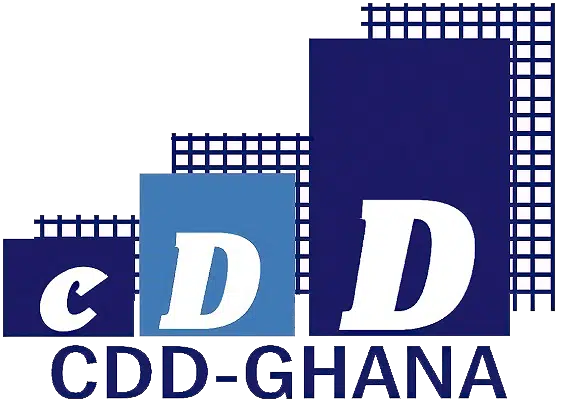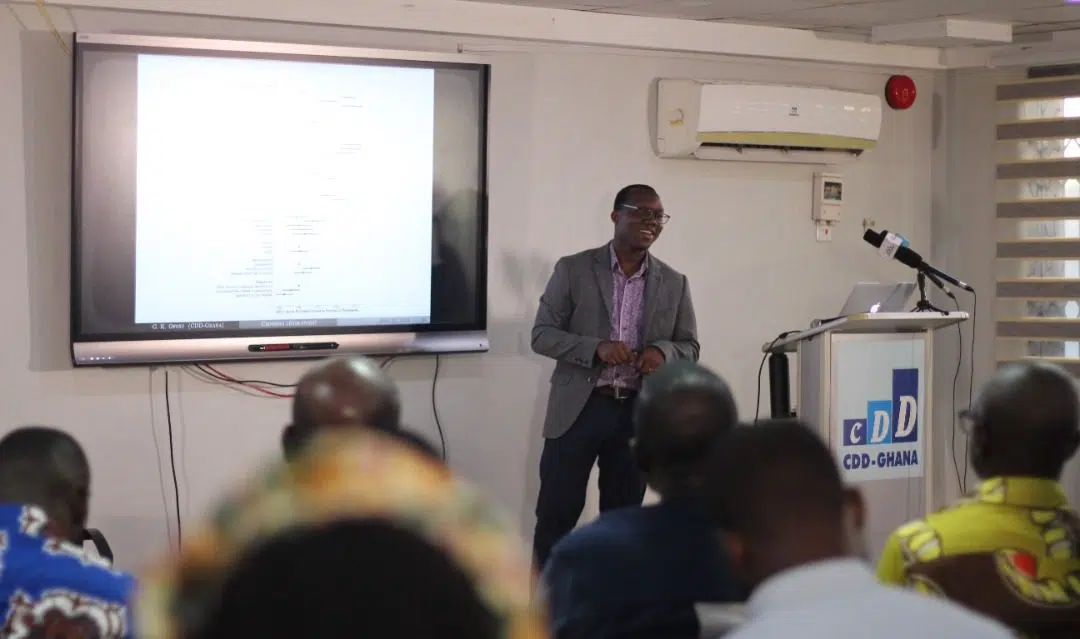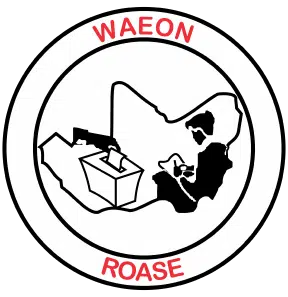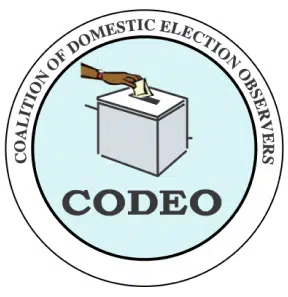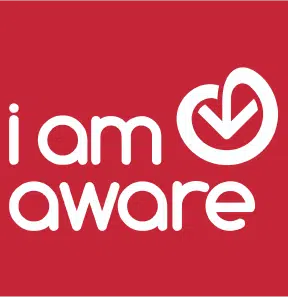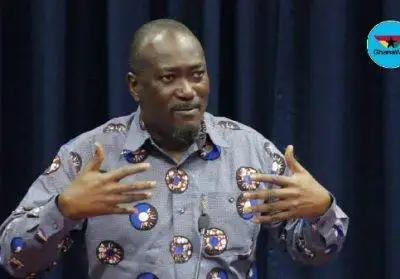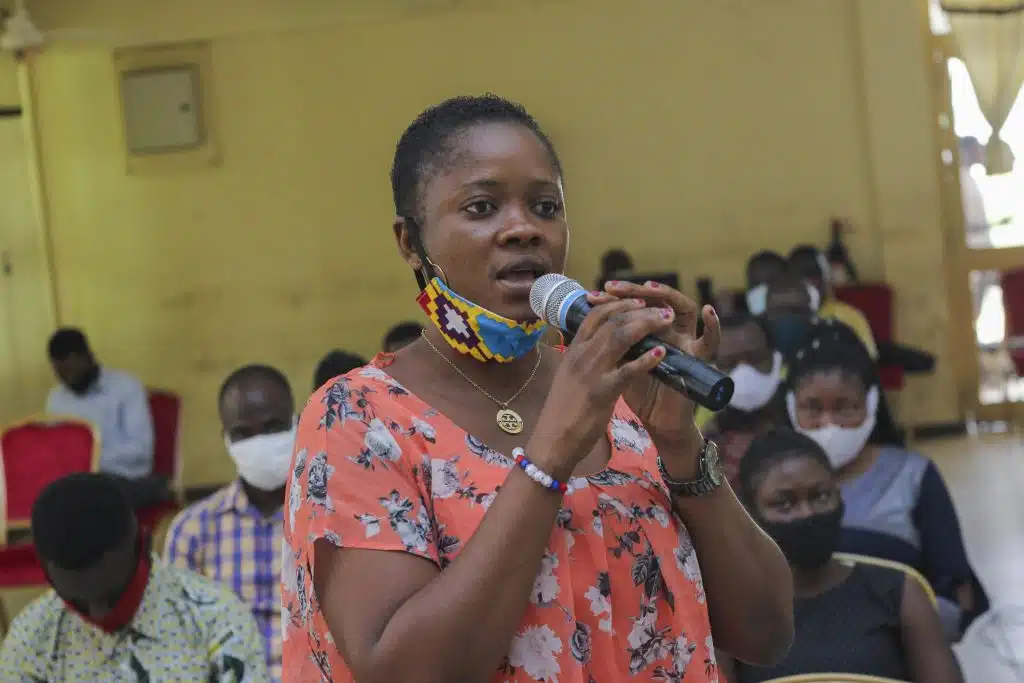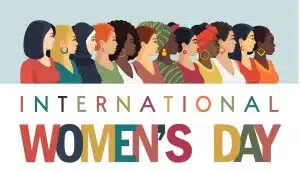Abstract
Agreements made by or on behalf of the Government of Ghana (‘GoG’) play a key role in securing resources for national development, managing the economy, and structuring Ghana’s relations with other countries. Concerns have frequently been raised, however, about the opacity surrounding the negotiation of these agreements, their fairness or value for money. Parliament, which must by law approve these Executive-initiated agreements before they can bind the State, has been criticised for failing in its duty to subject these agreements to diligent and independent scrutiny. On its part, the Supreme Court has been blamed for compounding the problem with its decision in Felix Klomega (No.2) v Attorney General, Ghana Ports and Harbours Authority, Meridian Port Holdings Limited and Meridian Port Services Ltd[1] where it held that for the purposes of parliamentary scrutiny of public agreements, the word ‘government’ as used in article 181 of the 1992 Constitution does not include State corporate entities. Therefore, agreements and transactions entered into by such State entities need not undergo or receive parliamentary scrutiny and approval. The holding that subjecting such agreements to parliamentary scrutiny would overburden Parliament is disturbing. It effectively creates a window for the central government to enter into transactions with varied financial implications, using state entities as conduits; thereby circumventing accountability mechanisms established by the Constitution. This paper examines the Court’s decision in Klomega and its implications for public financial management and accountability.
Introduction
1.1 The facts of the case
The plaintiff, Felix Klomega, a Ghanaian citizen, instituted proceedings in the Supreme Court, pursuant to articles 2(1) and 130 of the 1992 Constitution (‘the Constitution’), challenging the constitutional validity of a concession agreement and an associated shareholders agreement for the design, construction and, subsequently, the maintenance, operation and management of the Container Terminal at the Tema Port, for a 20-year period.
The Ghana Ports and Harbours Authority (‘GPHA’) granted the concession to Meridian Port Services Limited (‘MPS’). MPS is a Ghanaian company, being a joint venture between Meridian Port Holdings Limited (‘MPH’) and the GPHA, with MPH being the majority shareholder. MPH is an English company, being a joint venture between leading container terminal operators APM Terminals and Bolloré Africa Logistics. The GPHA is a statutory corporation established by the Ghana Ports and Harbours Authority Act, 1986 (PNDCL 160). The Attorney General was named as a defendant to the suit, along with GPHA, MPS and MPH.
1.2 The issues in the case
Article 181(5) of the Constitution requires that any ‘international business or economic transaction’ to which the government is a party must be approved by Parliament.
The plaintiff, Klomega, argued that the word ‘government’ (as used in article 181) included a state entity such as GPHA. Therefore, the concession agreement and shareholders’ agreement initiated and entered into by GPHA should be declared void for want of parliamentary authorisation or approval.
The defendants argued that the GPHA could not be included within the definition of ‘government’ because (i) the GPHA had been set up as a separate legal entity, distinct from the central government under PNDCL 160; (ii) the GPHA’s operations are commercial in nature. Therefore, it would be absurd to cripple its activities by requiring Parliamentary approval of its commercial deals; and (iii) that statutory corporations such as the GPHA have legal and operational autonomy and their financial transactions and international business or economic transactions should not be regarded as ones to which government is a party.
If, contrary to the arguments of the defendants, GPHA was deemed to be within the definition of ‘government’, the court was asked by plaintiff to determine whether the concession agreement and the shareholders’ agreement were, in any event, ‘international business or economic transactions’ for the purposes of article 181(5) of the Constitution.
1.3 The Supreme Court’s decision
On 19 July 2013, the Supreme Court in a unanimous decision dismissed the plaintiff’s action. On the principal issue as to whether the GPHA falls within the meaning of ‘government’, the Court held that in the context of article 181(5) and the facts of the case, the 2nd defendant (GPHA) is not to be regarded as coming within the meaning of ‘government’. The Court reasoned that to subject the international business transactions of statutory corporations with commercial functions to the Parliamentary approval process prescribed in article 181(5) would probably increase the weight of Parliament’s responsibilities in this regard to an unsustainable level. Accordingly, the court held that it is reasonable to infer that the framers of the Constitution did not intend such a result. In the court’s view, ‘government’ should mean, ordinarily, the central government and not operationally autonomous agencies of government. As such, the word ‘government’ as used in the context of article 181(5), should be interpreted purposively to exclude statutory corporations such as the GPHA.
The Supreme Court did, however, state that its decision did not lay down an absolute rule. For instance, article 181(5) may still apply on the particular facts of a case if the central government was found to have made a particular statutory corporation its alter ego.
In this paper, I reflect on this Supreme Court decision and its implications for public financial management and accountability. First, I highlight the origins of article 181(5) to demonstrate the importance of parliamentary scrutiny and approval of transactions initiated by or entered into by the Government of Ghana (‘GoG’). Secondly, I discuss what constitutes an international business transaction. Thirdly, I discuss the circumstances under which the State could be held liable for the contractual obligations arising from a transaction initiated by or entered into by a State corporation or a State-owned enterprise (‘SOE’) to demonstrate why the Court’s reasoning in Klomega is unsustainable. I conclude with a call on the Supreme Court to review its decision at the earliest opportunity and for Parliament to step up to its constitutional obligation of passing legislation to regulate the scrutiny and approval of ‘article 181(5)’ transactions.
2.0 The origins and policy rationale of article 181
Article 181 of the Constitution states as follows:
(1) Parliament may, by a resolution supported by the votes of a majority of all the members of Parliament, authorise the Government to enter into an agreement for the granting of a loan out of any public fund or public account.
(2) An agreement entered into under clause (1) of this article shall be laid before Parliament and shall not come into operation unless it is approved by a resolution of Parliament.
(3) No loan shall be raised by the Government on behalf of itself or any other public institution or authority otherwise than by or under the authority of an Act of Parliament.
(4) An Act of Parliament enacted in accordance with clause (3) of this article shall provide—(a) That the terms and conditions of a loan shall be laid before Parliament and shall not come into operation unless they have been approved by a resolution of Parliament; and (b) That any moneys received in respect of that loan shall be paid into the Consolidated Fund and form part of that Fund or into some other public fund of Ghana either existing or created for the purposes of the loan.
(5) This article shall, with the necessary modifications by Parliament, apply to an international business or economic transaction to which the Government is a party as it applies to a loan. [Emphasis added]
To fully appreciate the thinking of the framers of the 1992 Constitution on this article, it is important to refer to its origin: article 133 of the 1969 Constitution. Article 133 of the 1969 Constitution dealt exclusively with loans without any reference to international business or economic transactions. The rational for this provision was expressed in the ‘The Proposals of the Constitutional Commission for a Constitution for Ghana (1968) (hereinafter referred to as ‘the 1968 Proposals’) thus:
‘One of the most revealing consequences of the coup d’etat of the 24th February was the realisation by the people of Ghana of the huge debt which the country owed. Apart from the fact that our economy had been made bankrupt we owed money, well over NC800, 000,000. We need not go into the details; we all know the various agreements which the National Liberation Council has had to undertake in order to have a rescheduling of our external debts. This calls for specific provisions in the Constitution to deal with the question of loans, and we propose that Government should not enter into an agreement for the granting of a loan out of any public fund or public account unless the National Assembly has approved, by the votes of not less than two-thirds of all the members of the Assembly, the granting of the loan.’[2]
‘We further propose that the agreement entered into in respect of the loan should be laid before the National Assembly and should not become effective or operative unless it has been approved by an ordinary resolution of the National Assembly in the case of a loan granted to an authority in the country, but where the agreement is in respect of a loan granted to an authority outside this country then the agreement should only come into force after a resolution in favour of the granting of the loan has been passed by the National Assembly, supported by the votes of not less than two-thirds of all the members of the National Assembly.’[3]
‘We are strongly of the view that the above proposals relating to the granting of loans should apply with equal force to the raising of loans. The only addition we wish to make is that the Government should not have power to raise a loan on behalf of itself or any public institution or authority except by or under the authority of an Act of Parliament. That Act of Parliament should incorporate our above proposals regarding resolutions of the National Assembly mutatis mutandis.’[4]
As the Supreme Court noted in Attorney-General v. Faroe Atlantic Co. Ltd[5], “it is clear that the purpose of the framers of the original provision was to ensure transparency, openness and Parliamentary consent in relation to debt obligations contracted by the State. These original provisions of 1969 Constitution were maintained unchanged in the 1979 Constitution as article 144. It is in the 1992 Constitution that this long-standing provision on the giving and raising of loans is modified to include another category of contract, namely ‘an international business or economic transaction to which the Government is a party”.
3.0 What constitutes an international business or economic transaction?
The Constitution does not provide any interpretation of the term ‘international business transaction’. The Constitution however places an obligation on Parliament to pass legislation to give clarity on what constitutes an international business transaction to which government is a party and to which article 181(5) is applicable. Parliament is yet to fulfill this obligation. In the absence of such legislation, the Supreme Court has attempted to clarify what amounts to an international business transaction. The court speaking through Sophia Akuffo JSC in Faroe observed thus
‘…Article 181(5) specifically deals with international business or economic transactions, rather than loans. When one contracting party agrees to supply and the other party agrees to purchase and pay for the thing supplied, is there not a business transaction? I believe there is. And if the supplier is a non-Ghanaian entity and the party of the other part is the Government of Ghana, it is an international business transaction.’
This implies that the term ‘international business transaction’ covers transactions or agreements concluded by the GoG with a foreign government, a foreign company, a firm or transnational corporation or an international institution or an agency of a foreign government.[6] Examples of such are bilateral investment promotion and protection agreements, joint venture between GoG and foreign companies, and debt rescheduling with international financial institutions.[7] So long as GoG is a party to a transaction in which the other contracting party is a foreign entity, such transaction must be scrutinised and approved by parliament to be enforceable. In Faroe, the Supreme Court held that a Power Purchase Agreement between Faroe Atlantic Co. Ltd and GoG (acting through the Ministry of Mines and Energy) entered into in 1998 without parliamentary approval, contrary to article 181(5), was unconstitutional and as a result unenforceable. The Court refused the enforcement of damages awarded Faroe Atlantic Co. Ltd by the trial court because an unconstitutional agreement is not binding on the Republic, even though the trial court had held GoG to be in breach of it.
4.0 Circumstances under which the State could be held liable for transactions entered into by State-Owned Enterprises (‘SOEs’)
The Supreme Court in Klomega appears to have adopted a three-tier ‘test’ in its determination of whether or not a State-Owned Enterprise (‘SOE’) or public corporation falls within the meaning of the word ‘government’ as used in article 181(5). The test being: (i) if the SOE has a separate legal personality, it does not fall within the purview of article 181(5); (ii) if the SOE’s transactions are subject to ministerial oversight, then the ministerial oversight is adequate. Therefore, the transaction does not fall within article 181(5); and (iii) it is impracticable to subject every transaction entered into by an SOE to parliamentary approval. As such, not every transaction entered into by an SOE should be subjected to parliamentary approval.
4.1 Relationship between Government and SOEs
There is hardly any widely accepted definition of an SOE. However, most SOEs have certain key characteristics; namely,
- the SOE has a separate legal personality;
- it is at least partially controlled by a government unit; and
- it engages largely in commercial or economic activities.[8]
Therefore, it is common to find statutes establishing SOEs conferring separate legal personality status on them by default. The GPHA (2nd Defendant in Klomega) for instance is established as a body corporate having perpetual succession and can sue and be sued in its own name. According to the establishment statute (PNDCL 160), GHPA in the performance of its functions may acquire movable or immovable property; dispose of such property and enter into a contract of any other transaction.[9]
Despite their separate legal personality, SOEs often perform functions that are public in nature. In many countries, SOEs provide basic services such as water, electricity, and transportation to people. Some SOEs also perform functions that are regulatory in nature. The GPHA for instance is empowered by its establishment statute to ‘plan, build, develop, manage, maintain, operate and control ports in Ghana’. In doing so, it is mandated to amongst others, ‘regulate the use of any port and of the port facilities’; ‘license small ships to lie, ply for hire or otherwise be used within a port upon such terms and conditions as the Authority [GPHA] may deem fit’; ‘appoint, license and regulate stevedores, master porters to operate in the container terminals’.[10] The GPHA is also empowered to ‘…by legislative instrument make regulations for the maintenance, control and management of any port…’[11] In addition to these regulatory functions, some SOEs are also funded by the State and are subject to some level of government control. In the case of GPHA for instance, its funding sources include budget allocations and loans from GoG.[12] The State may also acquire property for GPHA under the State Property and Contracts Act, 1960 (C.A.6) and the State Lands Act, 1962 (Act 125).[13] In terms of control, the President appoints the Director-General and members of the GPHA’s governing Board.[14] The GPHA Board is required to comply with directives given by the President in its operations.[15] All these characteristics of the GPHA demonstrate that despite its separate legal personality, the GPHA is essentially an extension of government, even though in carrying out its commercial operations it may not appear to be carrying out a direct government function.
4.2 When may an SOE’s corporate veil be lifted?
There are instances where a court could disregard the separate legal status of an SOE in order to hold the State liable for the contractual obligations or actions of an SOE. In the case of First National City Bank v. Banco Para El Comercio Exterior de Cuba I (Citibank)[16] (herein referred to as ‘Bancec’), the United States Supreme Court considered whether an American bank may counterclaim against a Cuban government trading company for the value of the American bank’s assets expropriated by the Cuban central government. The dispute in Citibank arose out of Citibank’s conversion of funds belonging to Banco Para El Comercio Exterior de Cuba (‘Bancec’). The resolution of the dispute, however, centered on the relationship between Bancec and the Cuban central government. Despite Cuban legislation establishing the trading company as an autonomous juridical entity, the Supreme Court treated the trading company as an alter ego of the Cuban central government. It held that while there exists a strong presumption that government instrumentalities have a separate legal identity (along with limited liability) from their ‘parent’ governments, this presumption can be overcome in certain situations—for example, ‘where a corporate entity is so extensively controlled by its owner that a relationship of principal and agent is created, one may be held liable for the actions of the other.’ In addition, the court emphasized that the doctrine of corporate entity would be disregarded where its recognition would lead to fraud or injustice. Thus, in Bancec the US Supreme Court established a disjunctive test for when the separate identities of sovereign and instrumentality should be disregarded: when there is ‘extensive[] control,’ and when recognising the separate identities would lead to ‘fraud or injustice’.
Recently in the case of Rubin v. Islamic Republic of Iran[17], the US Supreme Court expanded the ‘Bancec test’. The plaintiffs in Rubin held a judgment against the Islamic Republic of Iran and attempted to attach and execute against certain Iranian artifacts on loan to the University of Chicago. In addressing whether that attachment was proper (it was not), the Supreme Court established a multi-factor test to aid its analysis:
(1) the level of economic control by the government;
(2) whether the entity’s profits go to the government;
(3) the degree to which government officials manage the entity or otherwise have a hand in its daily affairs; and
(4) whether the government is the real beneficiary of the entity’s conduct.
Even though the US supreme court decision is not binding on our courts, this multi-factor test established by the US Supreme Court in Bancec and Rubin is useful in our analysis of Klomega.
In the case of Klomega, the GPHA by its establishment statute has a separate legal personality. Therefore, there is a presumption that GPHA operates independently from the central government. However, as the US Supreme Court made it clear in Bancec and Rubin there are some extraordinary circumstances—including where the central government exerts dominion over a state corporation or SOE so extensive as to be beyond normal supervisory control—that require that we ignore the formal separateness of the two entities (central government and SOE).
The establishment statute and the operations of the GPHA warrant that in considering whether to subject its international business transactions to parliamentary scrutiny and approval, the court sets aside GPHA’s corporate veil because it is essentially an extension of government. Budget allocations and loans from GoG are a key source of funding for the GPHA. The GPHA cannot maintain a foreign exchange account into which it may keep part of its revenue except with the approval of the Finance Minister.[18] The Auditor-General whose mandate is to audit and report on all public accounts of Ghana audits the account books and records of the GPHA.[19]
Further, its establishment statute allows GoG to acquire property for GPHA under the State Property and Contracts Act, 1960 (C.A.6) and the State Lands Act, 1962 (Act 125). The President appoints the Director-General and members of the GPHA’s Board. The GPHA Board is by law required to comply with directives given by the President in its operations. At the end of every financial year, the GPHA Board is under obligation to submit a report on the activities of the GPHA to the Minister of Transport who in turn submits a copy of the report to the President.[20]
In addition, the Minister of Transport may ‘from time to time’ request the GPHA Board to furnish him with such reports.[21] It is also worth mentioning that all SOEs are under obligation to submit their audited financial statements to the Finance Minister ‘not later than four months after the end of each financial year’.[22]
All these factors demonstrate that GoG’s dominion over GPHA is so extensive and goes beyond normal supervisory control. Therefore, in giving effect to article 181(5) of the Constitution, it is sound to reason that an entity like the GPHA falls within the meaning of ‘government’ for the purposes of subjecting its international business transactions to parliamentary scrutiny and approval.
4.2.1 Substituting parliamentary scrutiny for ministerial supervision
The Supreme Court in Klomega reasoned that
where an agency has a separate legal personality distinct from central government, it usually comes under sectoral ministerial supervision. The Board of the corporation and the appropriate Ministry should then exercise oversight over its international business or economic agreements. That oversight should be exercised within the context of the procurement laws of this country.
Ministerial supervision cannot be a substitute for parliamentary oversight. Substituting parliamentary oversight for ministerial (executive) supervision is counterproductive given the fundamental purpose of article 181; which is to ensure transparency and openness. Further, the fact of ministerial supervision itself clearly shows the controlling hand of GoG; even more reason to subject the international business transactions of SOEs to parliamentary scrutiny.
4.2.2 Sidestepping the constitution to avoid overburdening Parliament
The Supreme Court in Klomega also reasoned that ‘Parliament would be sucked into unnecessary minutiae if it were to have the function of approving the international business or economic agreements of statutory corporations.’ The court’s ‘purposive’ interpretation of article 181(5) cures no mischief. It essentially amounts to sidestepping the Constitution in the name of practicality. This interpretation compromises ‘democratic transparency for commercial expediency’.[23] The decision creates room for the central government to circumvent accountability mechanisms established by the constitution by entering into international business transactions with varied financial implications, using SOEs as conduits.
Further, this interpretation is contrary to the court’s own jurisprudence. In Faroe, the court speaking through Sophia Akuffo JSC held that
“[t]he Constitution is the supreme law of the land and article 1(1) makes it clear that ‘…the powers of government are to be exercised in the manner and within the limits laid down in this Constitution.’ As the supreme law of the land, the Constitution is applicable at all times and all acts and things, particularly those done for and on behalf of the Republic of Ghana, must always be tested against its provisions. In the course of judicial proceedings, it is incumbent upon every Judge to keep its provisions in mind to assure compliance, not only by the parties before it, but also by the court itself.’
The court in carrying out its sacred duty of interpreting the constitution cannot be seen to pick and choose when and how an express constitutional instruction—in this case article 181(5)—should apply.
5.0 Conclusion and Way forward
The State has frequently been forced to defend costly suits in international arbitration; risking or paying huge judgment awards for alleged breaches of some of these agreements. The opacity surrounding the negotiation of these agreements, their fairness and or value for money are justifiable grounds for concern. Parliament’s failure to subject these agreements to diligent and independent scrutiny has been identified as a significant gap. Unfortunately, the Supreme Court has failed to provide a solution as its decision in Klomega has further compounded the problem. As I have shown in this paper, the Court’s reasoning for failing to treat the GPHA (an SOE) as an extension of government within the context of article 181(5) is unsustainable. In a number of decisions such as Klomega and Faroe, the Court continues to call on Parliament to express clearly in statute the scope of its intervention with regard to such agreements. However, Parliament’s lack of intervention does not dispense with the need to clarify article 181(5) in a way that meets the history of the provision, and the objectives for which they were included in the 1992 Constitution. Even as we interpret this provision to align with evolving business practices and demands of commercial contracting, it is crucial that those objectives are preserved. The concerns necessitating the inclusion of this constitutional provision have not changed just because business practices have evolved. In fact, one could argue that the risks have gotten worse.
That said, because the Supreme Court has flubbed its lines; and worse, is whittling down the scope of Parliament’s obligation under article 181(5), under a paternalistic pretext of saving Parliament from doing excessive work, there is the need for Parliament to be awake to its role and to step up. In doing so, Parliament must clarify the types of international commercial agreements which must be subjected to parliamentary scrutiny and approval. For instance, Parliament can expressly state in statute that any international commercial transaction by a state entity above a certain threshold (monetary value) should be subjected to comprehensive parliamentary review. The review of transactions above the stated threshold must not be conducted under the routine ‘certificate of emergency’ to allow for a more diligent scrutiny.
[1] [2013-2015] 2 GLR 546
[2] ‘The Proposals of the Constitutional Commission for a Constitution for Ghana’ (1968), para 589
[3] ‘The Proposals of the Constitutional Commission for a Constitution for Ghana’ (1968), para 590
[4] ‘The Proposals of the Constitutional Commission for a Constitution for Ghana’ (1968), para 591
[5] [2003-2005] 2 GLR 580
[6] Report of the Constitutional Review Commission, para 279
[7] E. Y. Benneh, ‘Comments on External Loan Agreements, International Business Transactions and the Treaty-Making Power under the Fourth Republican Constitution of Ghana’, University of Ghana Law Journal (1996-1999), p.79
[8] ‘State-Owned Enterprises: The Other Government’, International Monetary Fund, April 2020, p.1
[9] Section 2, Ghana Ports and Harbours Authority Act, 1986 (PNDCL 160)
[10] Section 5, Ghana Ports and Harbours Authority Act, 1986 (PNDCL 160)
[11] Section 24, Ghana Ports and Harbours Authority Act, 1986 (PNDCL 160)
[12] Section 11, Ghana Ports and Harbours Authority Act, 1986 (PNDCL 160)
[13] Section 2, Ghana Ports and Harbours Authority Act, 1986 (PNDCL 160)
[14] Section 2, Ghana Ports and Harbours Authority Act, 1986 (PNDCL 160)
[15] Section 2, Ghana Ports and Harbours Authority Act, 1986 (PNDCL 160)
[16] 103 S. Ct. 2591 (1983)
[17] 138 S. Ct. 816, 823 (2018)
[18] Section 13, Ghana Ports and Harbours Authority Act, 1986 (PNDCL 160)
[19] Article 187(2), 1992 Constitution; Section 15, Ghana Ports and Harbours Authority Act, 1986 (PNDCL 160)
[20] Section 16, Ghana Ports and Harbours Authority Act, 1986 (PNDCL 160)
[21] ibid
[22] Section 95, Public Financial Management Act, 2016 (Act 921)
[23] Nana Dr. S.K.B. Asante, ‘Proposed Amendment of Article 181 of the Constitution; vol. 3: No. 4. 1996, p.2. Legislative Alert, published by the Institute of Economic Affairs, Accra, Ghana.
 Nicholas Opoku is a Legal & Governance Policy Analyst at the Ghana Center for Democratic Development (CDD-Ghana)
Nicholas Opoku is a Legal & Governance Policy Analyst at the Ghana Center for Democratic Development (CDD-Ghana)
